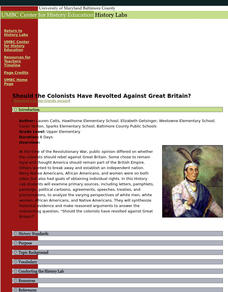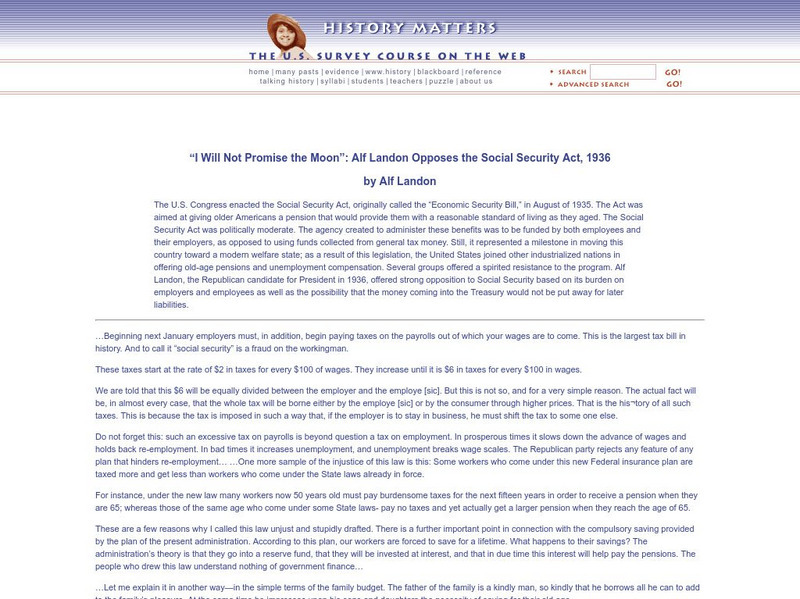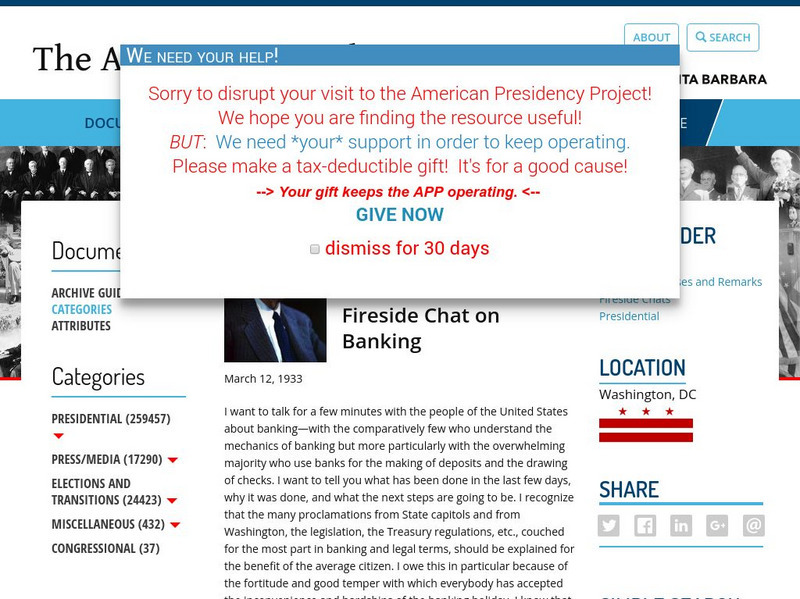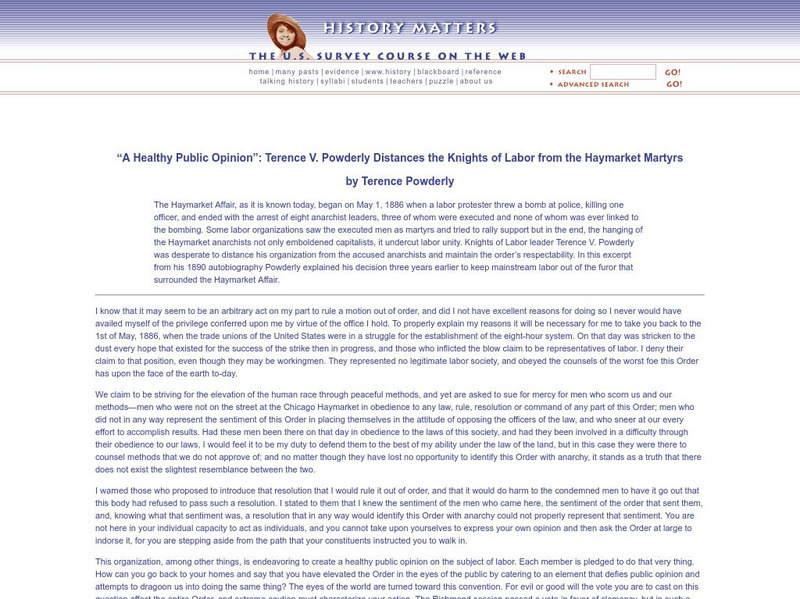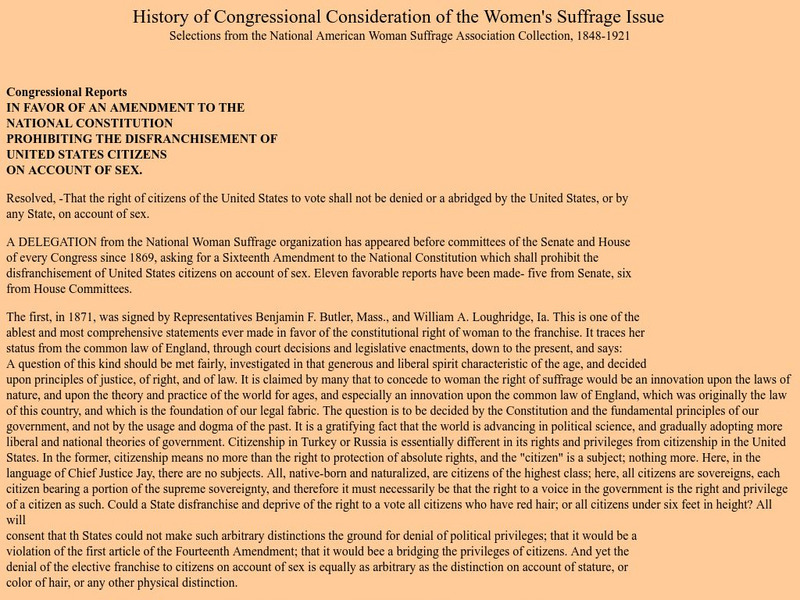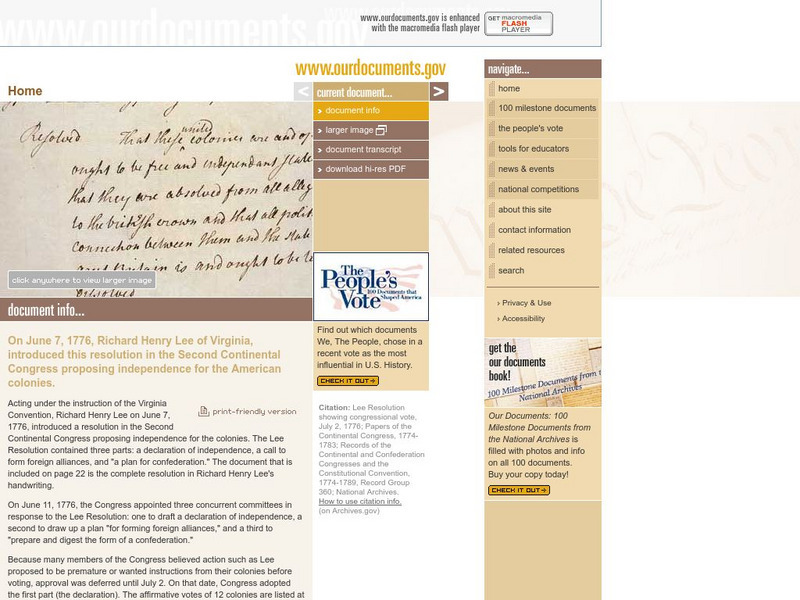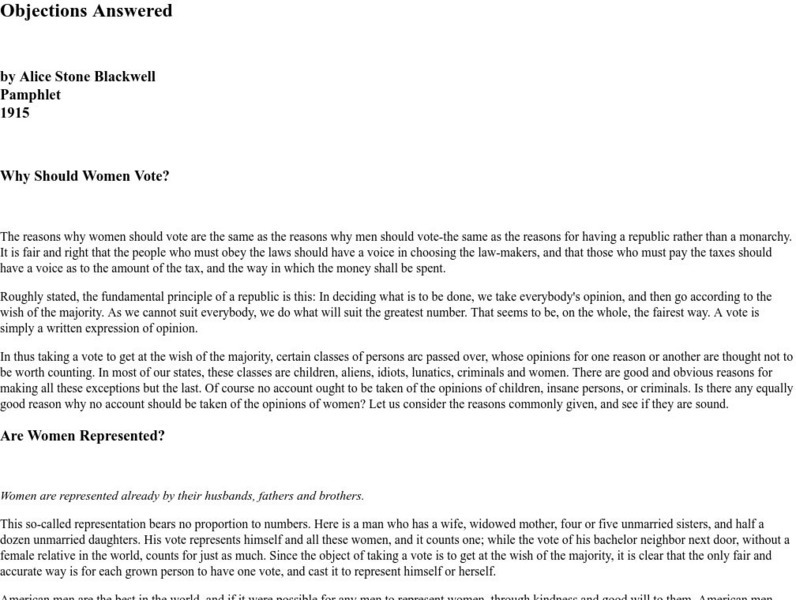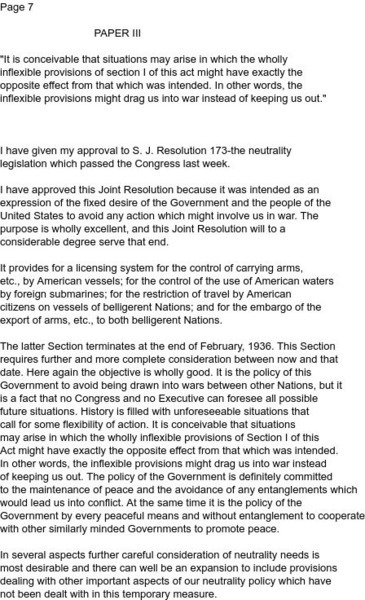Center for History Education
Should the Colonists Have Revolted Against Great Britain?
Should the Americans have taken the plunge and revolted against Great Britain? Using documents, including the famed Common Sense and a Loyalist response, pupils conduct a lengthy investigation of the question. The interesting resource...
Curated OER
History Matters: "I Will Not Promise the Moon"
As a candidate for President in 1936, Alf Landon gave a speech opposing the Social Security Act. Read his reasons for not supporting the law and why he didn't think that workers should be forced to save for their retirement.
Other
American Conservative: The Logic of Suicide Terrorism
An interview in which Robert Pape describes his research on suicide terrorism. A very interesting read on the basic reasons for this phenomenon.
American Presidency Project
American Presidency Project: Franklin D. Roosevelt: Fireside Chat on Banking
Read the text of Franklin Roosevelt's fireside chat on March 12, 1933, just days after he was inaugurated for first term, in which he explained the reasoning behind his declaration of a bank holiday.
Curated OER
History Matters: "A Healthy Public Opinion"
Read Terence V. Powderly's reasoning for keeping the Knights of Labor, which he headed, out of the turmoil that came after the Haymarket Square Riot.
University of Missouri
Exploring Constitutional Conflicts: Congressional Debates Over 19th Amendment
Read a summary of the debate in Congressional hearings about women's suffrage from 1869-1893. It's interesting to see the arguments against the enfranchisement of women along side the reasons for giving women the vote.
US National Archives
Our Documents: Interstate Commerce Act (1887)
Find an image of the original Interstate Commerce Act, passed in 1887, as a remedy to railroad monopolies. Read a transcript of the law, and an explanation of the reasons why such a law was necessary.
Other
D Archives: Alice Stone Blackwell, Objections Answered
Read this 1915 essay by Alice Stone Blackwell, who outlines the basic reasons women should be granted equal voting rights in the U.S.
Khan Academy
Khan Academy: 1917 Speech by Senator Norris in Opposition to American Entry
Read the full text of the speech by Senator Norris explaining the reasons some of the population opposed declaring war on Germany and entering WWI.
American Presidency Project
American Presidency Project: Veto of the Second Housing and Urban Renewal Bill
Read the text of President Eisenhower's letter to the Senate in which he lays out his reasons for vetoing a housing bill. See the specifics he gives that he feels would improve the bill and allow him to sign it.
United Nations
Charter of the United Nations: Table of Contents
This is the official, complete version of the UN Charter. It includes nineteen chapters, for a total of 111 Articles, but it is not difficult to read or comprehend, written in a reasonably clear, straightforward style. You cannot,...
Other
Social Security Act of 1935
A good overview of the Social Security Act, what it included, why it was proposed, and those whom it protected. Included are reasons for opposition to the act and mention of those who were left out of coverage. You can also read Franklin...
Other
Policy Innovations: Leadership as Practical Ethics
Dealing with difficult issues in the classroom can be challenging. Read about ethical reasoning and choices and how to address them in the classroom and the community setting.
ibiblio
Ibiblio: World War Ii Resources: 1935 Neutrality Act
Text of Franklin Roosevelt's approval of the Neutrality Act of 1935, passed by the Congress in August, 1935. Read why Roosevelt thinks this act is a reasonable reflection of American foreign policy in the mid-1930s.
Other popular searches
- Ell/esl Reading and Reasoning
- Esl/ell Reading and Reasoning
- Ell Reading and Reasoning
- Ell.SL Reading and Reasoning
